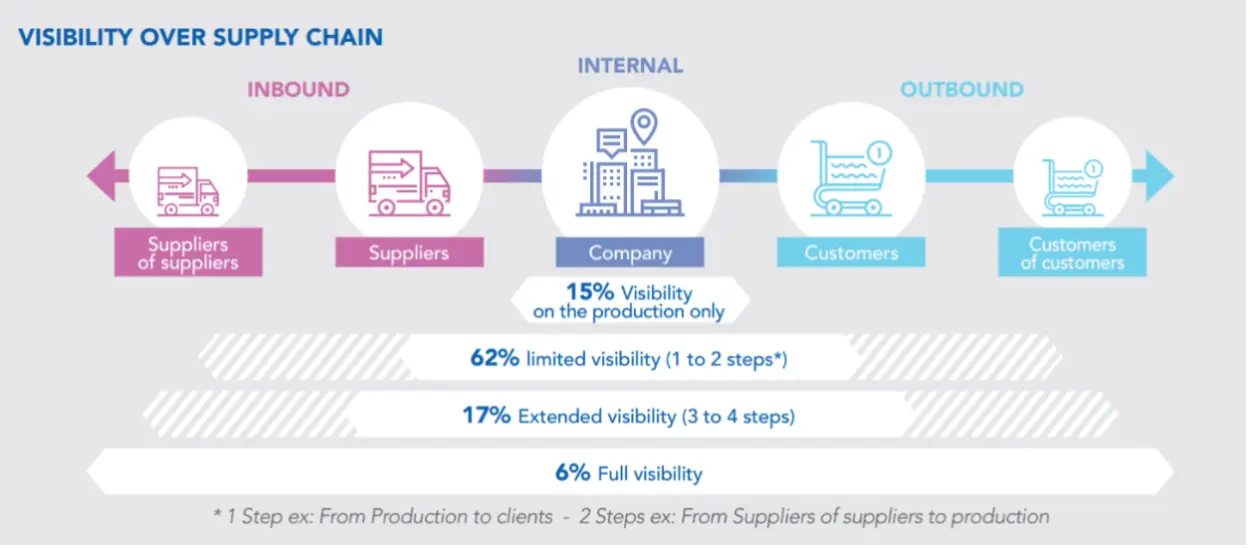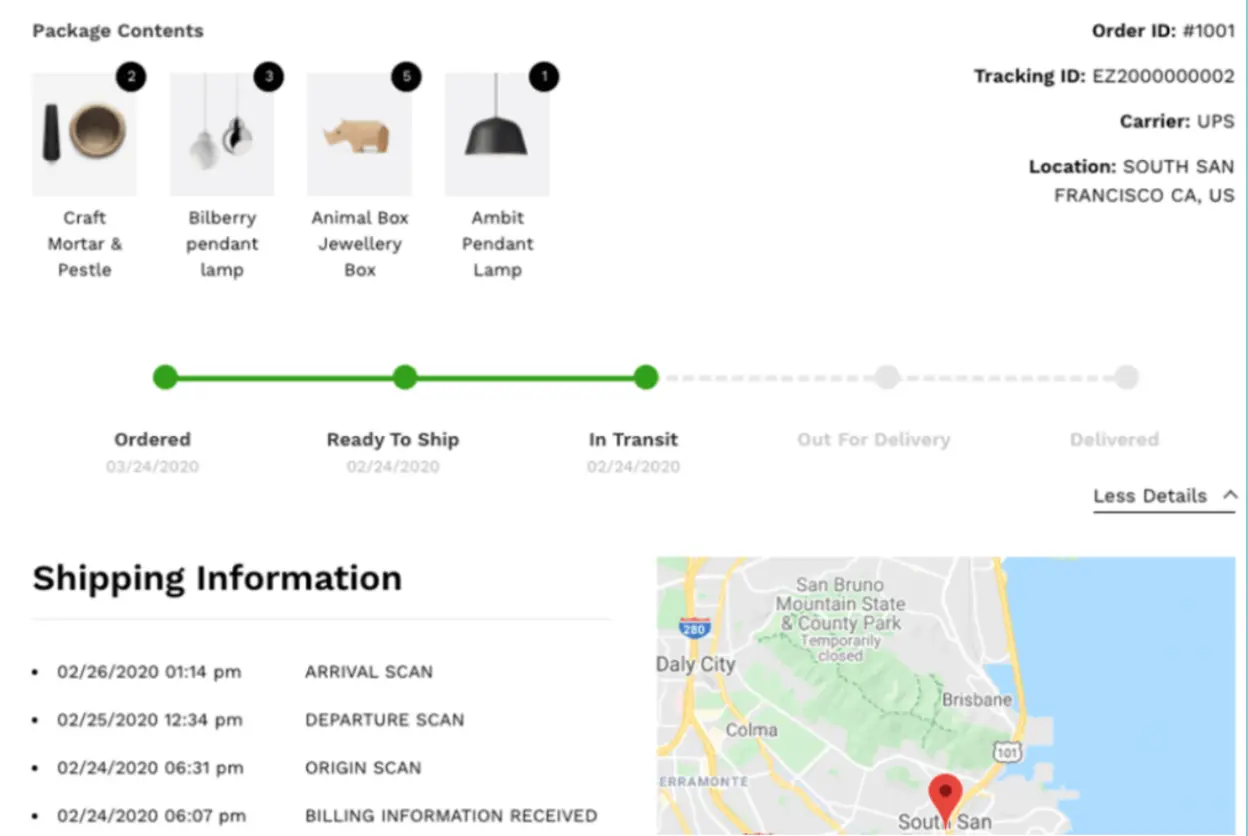Visibility refers to knowing exactly where the inventory is at every point in the eCommerce supply chain — and how well the parts or products in transit can be tracked in real-time as they move from the manufacturer or supplier to their final destination.
Achieving better visibility or transparency in the entire eCommerce supply chain is a big ask but something significant.
After all, your eCommerce success ties heavily to successful order fulfillment, which can’t happen without efficient and transparent end-to-end supply chain logistics.
Starting from your eCommerce company sourcing goods from suppliers and extending to inventory management, order status tracking, and shipping orders to end customers, maximizing your visibility into what’s happening in your supply chain puts you in a position to take your business to new heights.
Sure having downstream visibility, which focuses on getting the end product from the warehouse to the customer, is vital. Still, upstream visibility — which covers all the processes, actions, and movements involved in getting parts from the supplier to build the end product — is just as important.
While there are plenty of reasons why having better visibility in supply chain logistics is crucial, let’s take a quick look at the four core ones.
Top Reasons for Ensuring Visibility in Supply Chain Logistics
- Reduced Complexity
- Better Customer Experience
- Great Efficiency and Cost Control
- Improved Decision-Making Abilities
1. Reduced Complexity
Modern supply chains are incredibly complex, even for the most specific eCommerce businesses. 70% of respondents in a 2017 worldwide supply chain survey by Geodis state complexity as a significant issue.

Most companies surveyed — including eCommerce — say that improving supply chain visibility is equally important as product availability and on-time delivery.
On average, companies with complete supply chain visibility achieved a higher operating profit than those with limited visibility, partly due to reduced complexity.
This shows the significance of supply chain visibility and the edge you gain as an eCommerce company over competitors struggling with lower visibility.
2. Better Customer Experience
Better supply chain visibility means fewer blunders and a better customer experience in your eCommerce fulfillment.
From selecting products for checkout to tracking the status of their orders, if customers know that the right products are available and can be delivered at the right time and in the proper condition — it makes for a better customer experience, thus boosting eCommerce conversions and customer retention.
Consumers today expect fast and free shipping and the ability to track their orders from the loading dock to their doorstep every step of the way.

Plus, with data logging and condition monitoring in the procurement process, your eCommerce company can get all the data about the status of your cargo to avoid errors (and consequent losses) during warehousing and transportation.
When it comes to transportation technology, it's easier for providers to leverage digital technology to connect people and places through an ecosystem of smart technology solutions.
3. Greater Efficiency and Cost Control
You can’t improve what you can’t measure. Your eCommerce supply chain consumes a sizable chunk of your operating budget, so it needs to be as efficient as possible.
Any inefficiency negatively affects your bottom line. Better supply chain visibility means you can spot areas of improvement throughout the chain and thus cut operational costs.
So as you gain deeper insights into your entire supply chain (both downstream and up), from material sourcing to end customer shipments, you’re bound to identify inefficiencies that could be fixed for having better profitability.
4. Improved Decision-Making Abilities
End-to-end visibility in your eCommerce supply chain also helps make more informed decisions. Better supply chain visibility enables you to collect and present the real-time location and condition of your assets throughout the supply chain, which in turn lets you:
- Understand any disruptions when and where they happen
- Know beforehand when orders are potentially falling behind schedule
This enables you to make quicker and more informed decisions about the course of action to take – so you can keep the customer updated and in control.
Supply chain analytics platforms offer a unified, single source of data that updates in real-time.
Such tools are often AI-enabled, which means the software learns from your business, predicts future disruptions, and provides executable plans for optimizing your order fulfillment process.
You can make timely decisions using demand forecasts and better manage your inventory, suppliers, transport, and storage.
Lora Cecere, the founder of Supply Chain Insights and the author of Supply Chain Shaman, notes that many businesses struggle to interpret supply chain data and determine what to do.
She suggests that to realize accurate supply chain visibility, businesses need to go beyond knowing what’s happening (aka descriptive analytics, like what time an order was delivered last week) to predicting what will happen (aka prescriptive analytics, like what time an order is likely to be delivered next week), which can guide informed supply chain decision-making and minimize risks.
Closing Thoughts
Modern supply chains are becoming increasingly cloud-based and agile.
Ensuring end-to-end visibility in your eCommerce supply chain — with the help of supply chain visibility software — is a necessary step towards better agility in these unpredictable times. You can begin by using the POWR Form Builder to add a contact form to your website.
Visibility in supply chain logistics helps you better adapt to changing customer demands and market dynamics, stay compliant with regulatory requirements, and improve your eCommerce operational efficiency and customer experience.


